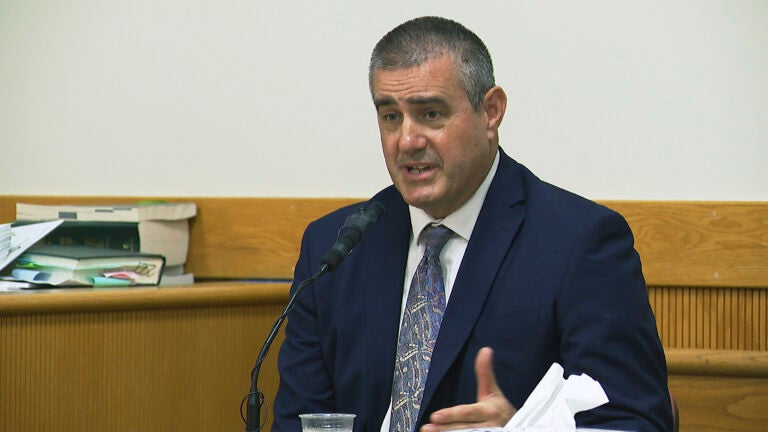
PROVIDENCE, R.I. — In a verdict that has captured the attention of the Rhode Island community, a jury has acquitted former high school basketball coach Aaron Thomas of second-degree child molestation and sexual assault charges. Instead, the jury found Thomas guilty of a lesser charge, misdemeanor battery, in a decision delivered on Monday.
The case revolved around Thomas’s controversial practice of conducting “naked fat tests” on male student-athletes at North Kingstown High School. Over the course of several decades, Thomas asked hundreds of students whether they were “shy or not shy” before requesting them to disrobe for body fat assessments. The jury’s decision came after nearly six weeks of testimony and deliberation.
Defense and Prosecution Perspectives
Defense attorneys argued that while the tests were inappropriate, they did not constitute a crime. They emphasized that Thomas did not derive sexual gratification from the tests, a critical element needed for the more severe charges. “We’d like to thank the jury for their attention, their hard work, and for their verdict. We are very satisfied that the jury saw the case as we saw it, no sexual intent whatsoever,” stated defense attorney John MacDonald outside the courthouse.
Conversely, prosecutors contended that Thomas’s actions were a guise for abuse. Attorney General Peter Neronha highlighted the impact on the victims, stating, “Above all else, this case is about the victims who suffered greatly behind closed doors. Pseudo-science is not an excuse for abuse, nor is winning more important than well-being.”
“We believe that what took place here was not just bad judgment, it was, and always has been, criminal conduct.” — Attorney General Peter Neronha
Legal Implications and Sentencing
The legal implications of the case are significant. Under Rhode Island law, misdemeanor battery carries a maximum sentence of one year in prison and a possible fine of up to $1,000. Sentencing for Thomas is scheduled for June 26. The charges pertained to incidents involving two former students, including one who was under 14 at the time, in September 2000 and February 2002.
Neronha has been vocal about the limitations of current statutes, advocating for an extension of the statute of limitations on second-degree assault from three to ten years. This change, he argues, would allow for more comprehensive legal action in similar cases.
Testimonies and Trial Insights
Throughout the trial, more than a dozen students, law enforcement officers, body composition experts, and former school officials provided testimony. Thomas himself admitted on the stand that the removal of underwear was unnecessary for the tests. Experts in body fat composition also testified that pinching near the groin is not a scientifically supported method for determining body fat.
Thomas’s defense team questioned the reliability of the testimonies from former students, citing mental health struggles and suggesting that their motivations were financially driven due to a separate civil lawsuit.
Thomas testified that he likely conducted tests on over 600 students, with about 80% removing their underwear during these assessments.
Community and Future Implications
The case has sparked a broader conversation about the responsibilities and boundaries of educators and coaches. While Thomas was acquitted of the most serious charges, the guilty verdict on misdemeanor battery underscores the need for clearer guidelines and oversight in schools.
As the community awaits Thomas’s sentencing, the case may lead to policy changes within educational institutions and potentially influence legislative efforts regarding the statute of limitations for similar offenses. The outcome serves as a reminder of the delicate balance between trust and accountability in educational settings.
The decision in this high-profile case not only affects those directly involved but also sets a precedent for how similar cases might be handled in the future, emphasizing the importance of safeguarding student welfare above all else.





